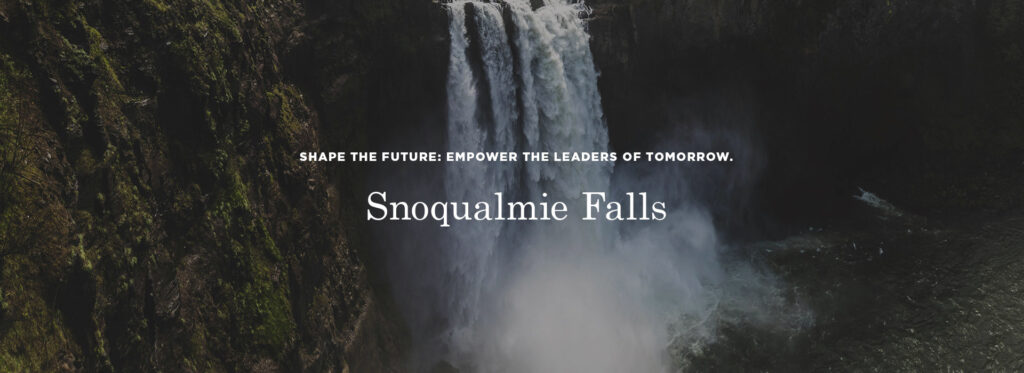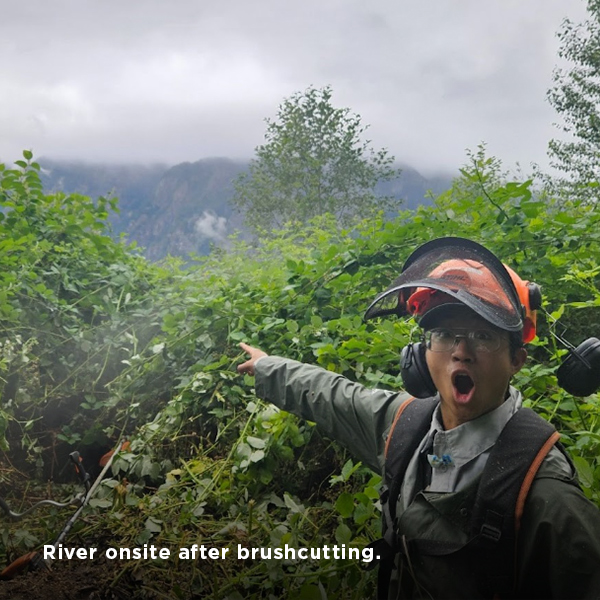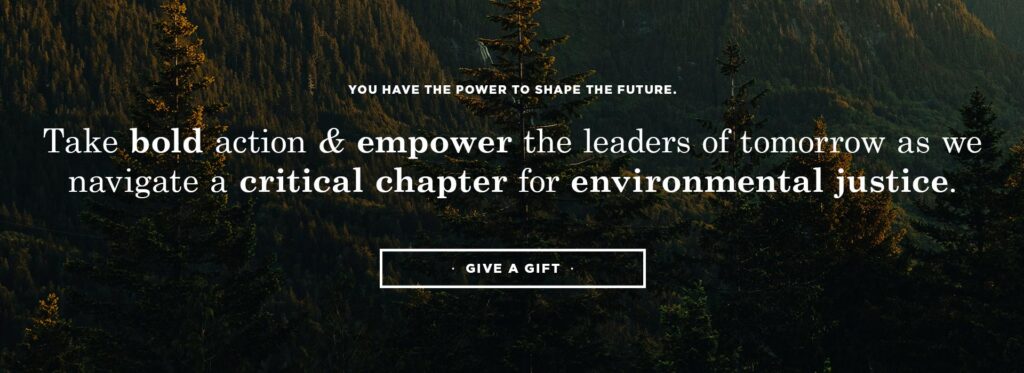Snoqualmie Falls

Written by River Lee
One of the most meaningful projects I have worked on was working with the Washington State Department of Natural Resources (WA DNR) and King County Noxious Weeds. from July 30th to August 2nd, in removing a huge area of blackberry in Snoqualmie Falls. This project was incredibly meaningful to me because of how I saw it impacted the plants and animals in the area, along with the people who used the area as well.
The project took place at Three Forks Nature Area, which was a part of the Snoqualmie River. Our goal as crew, along with the WA DNR and King County Noxious Weeds, was to get rid of a huge section of blackberry that was along one side of the creek on a land owner’s private property. The location was a boreal forest and riparian habitat.

How was the blackberry removed you ask? Through blood, sweat, and tears. Just kidding. Except for the sweat, there was a lot of sweat. Every single day we all had to cross the river, walk around a patch of thistle, climb up a small hill, and hike through the forest. In order to get out we would follow the process but backwards. Of course only the first and last days we had to carry the most amount of tools and other packs containing spare equipment and herbicide. Then the process of cutting pathways was to cut ‘strip mining strips’ that allowed for easier herbicide application so we could effectively target and spray all the blackberry bushes. The reason why there was a lot of sweat was not only because of the manual labor of using the brush cutters, carrying and spraying with the herbicide packs, and hiking. It was also because of the walking back and forth to refill the brush cutters with gas, the herbicide packs with herbicide and water, and it was also pushing 900F with high humidity. Lots, and lots of sweat.

The first day we brush cut the paths, which was approximately 76,665 sqft. The second day we finished brush cutting paths and started spraying herbicide which we covered approximately 54,540 sqft. Then the third day, we continued with spraying more herbicide in the big patch and some smaller stray patches which was another 45,681 sqft. And finally the last day we knocked out all the remaining black berry which came to a grand total of 111,949 sqft.
This was the second work camping trip that I had been on since the start of my term in June, and I was feeling a little overwhelmed with trying to pack all of the equipment needed at the start of the week, being flexible with the changing plan, and the other environmental (thorns) and weather (hot) conditions. So I was truly starting to doubt if anything we were doing was effective and worth it with all of this effort. But it was the second to last day when we pulled up to the site where there was elk grazing (not in the spots where we had applied herbicide). That was when I realized how this project was so much bigger than me, and how it affected so much more than my mind can possibly imagine

Courtesy of the elk, I was able to remember all of the other wildlife I had seen throughout the week: woodpeckers, robins, kingfishers, swallows, slugs, and even a rabbit! This further reassured me that I was in the right field of work. All of the energy, sweat, and effort the crew and I had been putting here in Snoqualmie, and other sites we have worked at, are all small puzzle pieces of making Washington, and the whole world, a better and greener place. And I know I can’t do it alone either! I’m so glad I’m on the crew that I’m on and how we’re all working together to get this world a little better than it was yesterday.


River has studied at Northern Illinois University and earned his Bachelor’s in Environmental Studies with a focus on Biological Restoration. He has also done several projects throughout his educational career from developing a tree management program for his college campus, to conducting research at the Nachusa Grasslands.
With an educational background in biodiversity, sustainable practices, and green technologies, and an extra curricular background in Speech and Debate, River is looking for a way to make the world around him more sustainable and cohesive with nature (I think cohesive is the right word).
When River isn’t fighting for a sustainable future, you can find him enjoying the outdoors fishing, birding, hiking. As well as find him on the piste fencing sabre.

